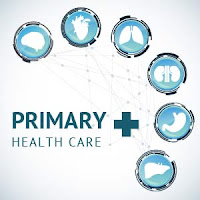Group 4: The Alma-Ata provides a definition for Primary Health Care. Using the comprehensive definition, how do the principles ensure that the definition is achieved?
The Alma-Ata provides a definition for Primary Health Care. Using the comprehensive definition, how do the principles ensure that the definition is achieved?
The Declaration of Alma Ata
This document was released in 1978 and it was composed of the five fundamental principles for effective, comprehensive primary health care service delivery. The principles were in response to the broader community and social issues leading to poor population in developing countries. The aim of these principles was to ensure prevention of diseases and promotion of the health of the people. All these principles come up with the definition of primary health care in a comprehensive manner.
Primary Health Care
According to the Declaration of Alma-Ata, Primary Health Care is essential health care based on practical, scientifically sound and socially acceptable methods and technology made universally accessible to individuals and families in the community through their full participation and at a cost that the community and the country can afford.
The following principles give an understanding of how the definition of primary health care is achieved;

- Accessibility - making sure that primary health care services are available, affordable and provided equally to all individuals irrespective of their gender, age, ethnicity or location. Access to comprehensive, compassionate, family, and community-centred health care is the right of all individuals, regardless of their ability to pay.
- Public or community participation - involving all community's resources in promoting health and addressing health problems at the grass roots level. This helps a community to take ownership for the health and wellness of its people.
- Health promotion - helping a community to strengthen the socio-economic conditions that contribute to good health.
- Appropriate use of technology - using medical technologies that are affordable, feasible and culturally acceptable to individuals and the community for the effective and efficient delivery of services.
- Intersectoral collaboration - recognizing that any community's health and well-being does not depend solely on effective health care services. Governments, businesses and organizations in other sectors are equally important in promoting the health and self-reliance of communities.
Objectives of Primary Health Care
- Fundamental right - Health is considered paramount to achieve full development of individuals and thereby the society. Health is not mere absence of disease but it is about the well-being of an individual.
- Equity - The need to reduce the inequality between developing and developed countries as well as within countries. It is considered vital for socio-economic development.
- Participation - It is the right and duty of individuals to participate in policy formulation and implementation of the health sector.
- State's role - Ensure "health for all by 2000". It adopted the goal of health for all by 2000.
- Social and economic development is essential for the overall individual as it linked health to both these factors.
- Primary Health Care is the most important as it acts as the first point of contact, therefore it needs to be strengthened.
References
- Primary Health Care (HDP 122) - Student workbook 2018
- Primary Health Care : Report of the International Conference on Primary health Care, Alma-Ata, USSR, 6-12 September 1978. (1978). Geneva: WHO.
- www.von.ca/en/principles-primary-health-care
- https://www.cna-aiic.ca
- https://www.slideshare.net



Comments
Post a Comment